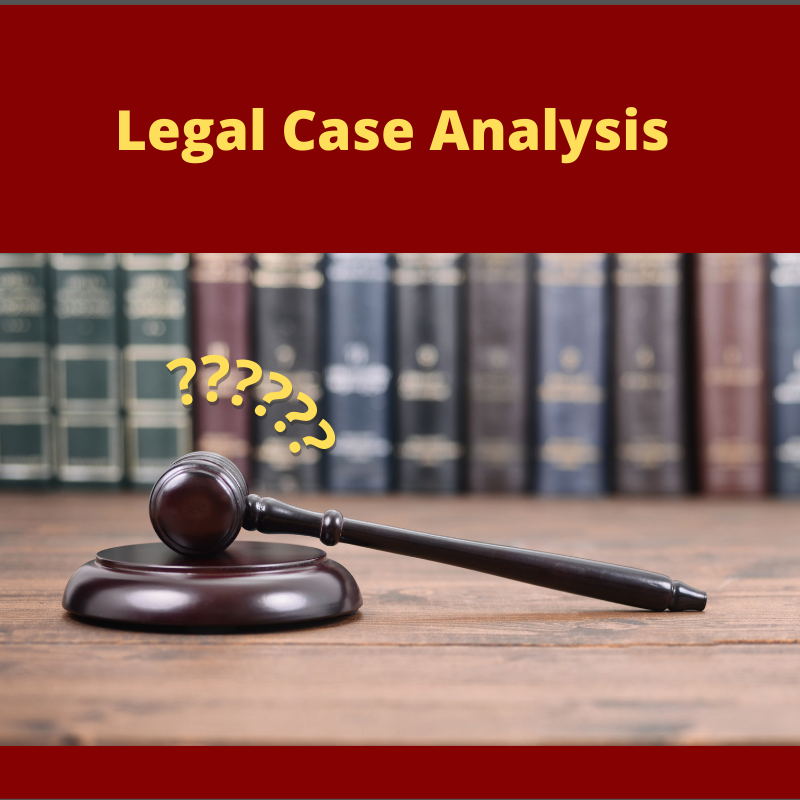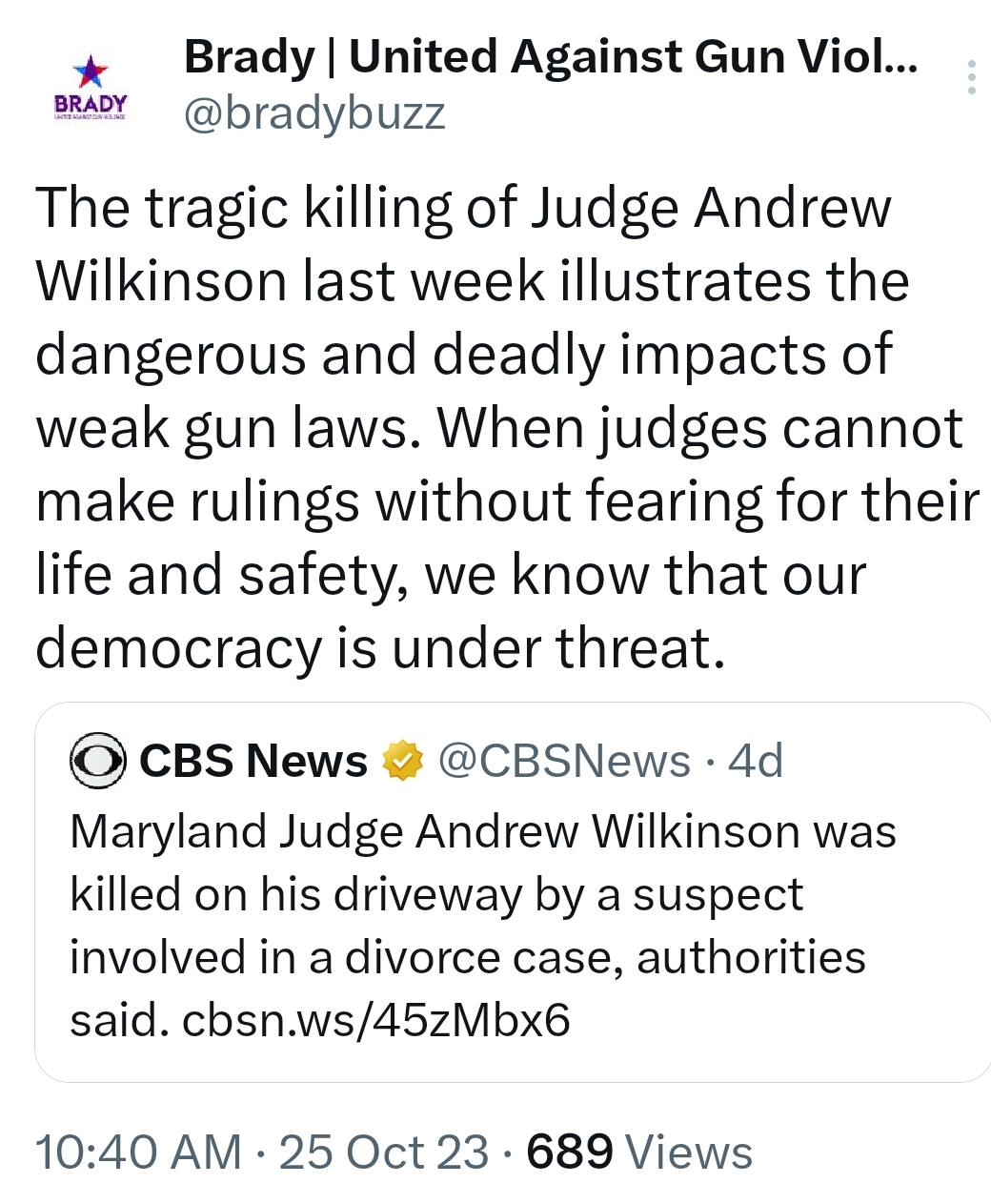The Mass Killer Checklist is progressing nicely.
Shooter known to authorities. ✔
Shooter known to have mental issues. ✔
Shooter warmed about engaging in future acts of violence. ✔
All info about this particular shooter released within 4 hours of event. ✔
It is like there is a script that must be faithfully followed.
PS: The 3-week Copycat warning is now running.
Prepare accordingly.
Progress, Koons v. AG New Jersey No. 23-1900 (3d Cir.)
(750 words)
They held oral arguments in this case today. It was before a three judge panel. I listened to about 1.5 hours of nearly three hours of arguments.
The state went first, they made some interesting arguments. I need to pay careful attention to the actual arguments because they sounded better than anything I’ve read, so far.
The judges were asking good questions of the state. It wasn’t a case of “tell us what we should rule” but they pushed for real answers to real questions.
One series of questions I remember is the Judges asking, “with this law in place, where can people legally care their firearms?”
The state made an argument that it was ok to ban carry in bars because there will be more people carrying guns and more guns means more accidents. When the judges pushed back regarding the history of banning carry in bars, the state explained that it used to be ok because people use to open carry in bars. If somebody was open carrying and drank too much, the laws disarming people who were drunk could be used.
Since open carry is banned, people can’t tell who is armed and drunk, so nobody can carry now.
As I said, the state lawyer did a good job of lawyering.
The lawyer representing law enforcement, not so much.
He didn’t seem as prepared. He started his arguments around Winter factors. The judges seemed to take pity on him, “Ignore the preliminary injunction, we want to talk about the merits”.
It only took three tries to get him on the right track.
When they got done with the line of questioning on the merits, they dismissed him. He took that as an opportunity to go back to his points.
Somebody must have signalled him because he then said, “oh, my time is up?” The judges politely said “yes” and he left.
I would feel sorry for him if he wasn’t an infringing enemy of The People.
When Rahimi was granted certiorari, I thought about writing my own brief. I didn’t I do not believe I am ready for such a big lift. On the other hand, I read some briefs where I am sure I could have done a better job.
Over in the Seventh Circuit Court of Appeals, they are considering Burnett v. Raoul. The reason I mention this is that one of the big hitters has stepped up to the plate. C.D. “Chuck” Michel is now one of the lawyers representing the plaintiffs (good guys).
When you read his firm’s filings, you learn how it is supposed to be done.
This lawyer for law enforcement that presented today wouldn’t qualify as an intern at Michel & Associates, P.C.
I don’t remember much about the plaintiff’s lawyer’s presentation. My lady was demanding my attention.
Conclusion
We now have cases that are fully briefed in the Second, Third, Fourth, and Seventh Circuit Courts. The first was heard by the Fourth, right after the case was GVRed by the Supreme Court. They will continue to sit on the case until one of their sister infringing courts gives them a ruling they can build on.
The next case was heard by the Second. The Second has the lowest average time from argument to opinion of the circuits. They have been sitting on the case for an extended period of time. I expect them to wait as long as possible.
The Seventh heard their cases, and that three judge panel is so anti-gun and anti gun-rights that I don’t expect an opinion out of them until the Supreme Court pries it out of their greedy hands.
The Ninth has some cases before it. Oral arguments have not been heard. The same with the Eleventh Circuit Court.
This takes us to the Fourth Circuit and today’s oral arguments. I actually believe that this court will issue their opinion before any of the other circuits. It just felt that way when I was listening to their questions.
Listening to Judges and Justices ask questions and attempting to figure out anything is called “reading the tea leaves”. Make sure you don’t say anything solid because reading the tea leaves seldom goes as expected.
Finally, there have been several positive cases out of the Fifth Circuit Court of Appeals. I don’t consider these cases as being useful in striking down bad state laws. There have been no Bruen tantrum response challenges in the Fifth because those states didn’t throw tantrums when the Supreme Court spanked them.
There are a couple of cases that are moving towards the Supreme Court or that are already at the Supreme Court from the Circuit Courts that have not gone rogue. These will go a long way to gutting some of the more egregious parts of federal gun-right infringements, but are unlikely to do anything about gun and magazine bans, nor of sensitive place restrictions.
Weak Gun Laws where exactly?
Maryland has weak Gun Laws? Really? But just some months ago, you guys were applauding a new batch of Gun restrictions signed into law by the governor. Your buddies from Giffords give the State an A Minus and it comes 7th in the states with “common sense” gun laws.
But suddenly Maryland is a threat to democracy for its “weak” gun laws, like it was Texas or Florida or Tennessee where any judge worth its salt is carrying a firearm as not to end like Judge Wilkinson.
Then again, there is no loyalty among the criminals, the Authoritarians and the Liberals.
Not going to a Waffle House in TN any time soon.
Still a Waffle House virgin and will remain vestal by the looks of it.
NASHVILLE, Tenn. (WSMV) – A gunman opened fire inside of a Nashville Waffle House early Wednesday morning injuring one person inside, according to the Metro Nashville Police Department.
Two men, an uncle and his nephew, were sitting at a table at the Stewarts Ferry Pike Waffle House location when they said a gunman they don’t know entered the restaurant and started a verbal fight.
When the gunman pulled out a weapon, the nephew rushed towards him and tried to take the gun away, according to police.
Shooting at Nashville Waffle House, gunman subdued by victim (wsmv.com)
Engage from a distance and with the proper tools. The hand-to-hand stuff works in the movies, not in real life.
Miller v. Bonta, Round 4, Ninth Circuit Court, FIGHT! -edited
 B.L.U.F.
B.L.U.F.
This is a challenge to California’s weapons ban. Judge Benitez used Heller, following the instructions of Bruen, and decided the case for the plaintiffs (good guys).
An analysis of the state’s request for an emergency stay pending appeal shows the state in nearly full on panic.
(2400 words)
It looks like this case has been up and down the ladder at least twice.
Judge Benitez gave the state 10 days to get a stay from the Ninth Circuit court. Theses are calendar days, per —Rules For Appellate Procedure (U.S.). This means that on the 29th of October 2023, the “Assault Weapons Ban” of California will be fully enjoined. People will once again be able to purchase rifles that have been banned for years.
Interestingly, they will not be able to purchase handguns that were excluded by the AWB. This is because none of the named AWB Pistols are on the handgun roster.
The state has filed for an emergency stay with the Ninth Circuit court.
To get a stay, the petitioner must meet the four Winters factors: the likelihood of success on the merits, irreparable injury, the balance of equity, and public interest. In Baird v. Bonta, the district court changed the order in which they weighted the four factors; they literally took them out of order. The Ninth Circuit then reversed the order (the legal statement of the court) of the district court. In plain language, the Ninth Circuit said that the inferior court got it wrong, and their (the Ninth Circuit) statement was the correct one.
In Baird v. Bonta, the Ninth Circuit reversed the order of the Winters factors used by the district court‘s order.
The district court abused its discretion by improperly applying the preliminary injunction standard.
As noted above, proper analysis of a preliminary injunction motion requires a district court to examine the Winter factors. The first factor—likelihood of success on the merits—is the most important (and usually decisive) one in cases where a plaintiff brings a constitutional claim, including a Second Amendment claim. Bruen did not change this multifactor preliminary injunction test, and the district court therefore abused its discretion when it deliberately skipped any analysis of the first Winter factor.
—Mark Baird v. Rob Bonta, No. 23-15016, slip op. at 9 (9th Cir.)
What does this mean to us? It means that anytime anybody requests a stay within the Ninth Circuit, the court must look at the merits first. If the likelihood of success on the merits favors the movementmovant (the person filing the motion), then the other three factors are considered.
In a civil rights case, any abridgment or infringement of a constitutionally protected right is, by definition, an irreparable injury. The balance of equity favors the protection of constitutionally protected rights. There is no public interest in enforcing an unconstitutional law.
This means that if the movementmotion is based on a constitutional challenge, if the movementmotion is likely to win on the merits, the other three factors favor the movementmovant as well.


